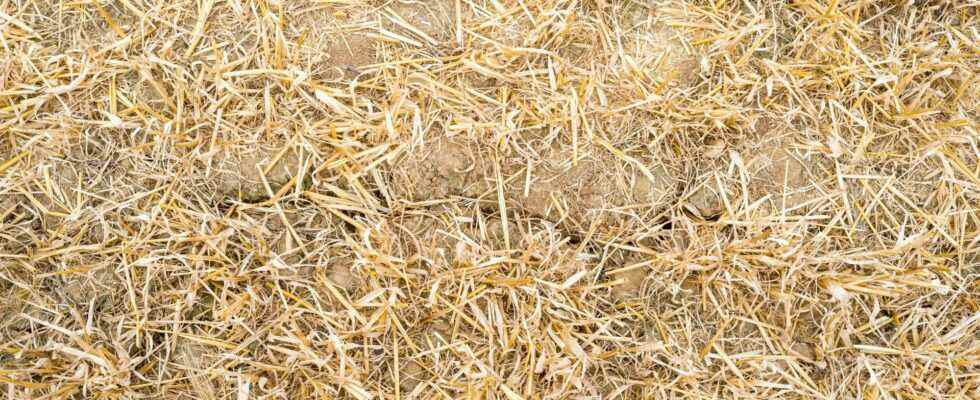In his field north of Tunis, farmer Mondher Mathali contemplates a stretch of durum wheat ears bending before starting his old and noisy combine harvester, likely to drop him at any moment.
Hard hit by soaring cereal prices caused by the war in Ukraine, Tunisia, which imports 66% of its cereal consumption and in particular from the Black Sea region, wants to reduce its dependence. If it will continue to import soft wheat for its bread, it aims for self-sufficiency in durum wheat, an essential ingredient in the diet in the Maghreb countries for dishes based on couscous and pasta, of which Tunisians are the second largest consumers. behind the Italians, with 17 kg of pasta per inhabitant per year. But farmers on the sunny plains of Cebalet Ben Ammar, north of the capital Tunis, are hampered by dilapidated equipment and a lack of financial assistance from the government.
“I would love to buy a new combine harvester, but I could only do it with the help of the government,” says farmer Mondher Mathali, 65, complaining that his machine, a 1976 model, wastes nearly one third of the harvest. The man, who struggles to find or buy spare parts, says he lives in fear of a major mechanical breakdown which would result in the loss of his entire harvest. Replacing his combine harvester, even on the second-hand market, would cost some 150,000 euros, an unaffordable sum for many small Tunisian farmers. “If the state supported us, our production and even the quality would increase by perhaps 50%, even 90%”, according to Mr. Mathali. “But our situation is getting worse and the state is not helping us,” he regrets.
“Tunisia has about 3,000 combine harvesters, 80% of which are old and very wasteful, which represents a significant shortfall,” acknowledged Faten Khamassi, head of the cabinet of the Minister of Agriculture. The soaring cereal prices on international markets have highlighted the issue of wheat production, which must be a priority. Between 2012 and 2016, the country imported around 33% of its durum wheat, 71% of its barley and 85% of its soft wheat, according to an FAO report. In addition to this dependence on imports, local production has also suffered from a decade of political instability with many changes of government since the 2011 revolution. “From time to time, there is a new Minister of Agriculture. He takes his post and the policy changes (…) There is no continuity, ”explains Saïda Beldi, an agricultural technician employed by the State, to AFP.
A fear that foreign investors may opt for other more lucrative crops.
Since April, the government has unveiled a series of measures to improve the situation, hoping to achieve full self-sufficiency in durum wheat by 2023 . Objective: to go from 560,000 to 800,000 hectares sown in durum wheat. The government grain board increased the price per tonne paid to farmers, to encourage them to produce more. The Ministry of Agriculture also hopes to increase the area of agricultural land devoted to soft wheat by 30% next season. He wants to help farmers get better seeds, get technical assistance and state-guaranteed loans. It also plans to help agricultural cooperatives to buy combine harvesters for collective use, says Ms. Khamassi. Despite the challenges, “it is certainly possible to achieve self-sufficiency in durum wheat,” she says.
As part of its efforts to develop the sector, the Ministry of Agriculture also announced in June that foreign investors would be allowed to wholly own agricultural businesses without having to have a Tunisian partner. Ms. Khamassi says the easing should attract foreign investment and create jobs in the sector. But economist Fadhel Kaboub warns that this measure could make Tunisia even more dependent on wheat imports. He fears that foreign investors may opt for other, more lucrative crops.
“The economic model of these large companies (…) is based on exports which bring them the dollars and euros they need to repay their debts, and not on producing wheat to sell for dinars on the local market. “, he underlines. “Small Tunisian farmers operating small plots of land will not be able to compete with large foreign investors who have access to cheap loans from European banks,” warns the economist. To maintain hope despite his rickety combine harvester, farmer Mondher Mathali draws on the history of his country and finds there reasons to be optimistic: “Tunisia was the breadbasket of the Roman Empire. What prevents us from becoming it again? »
